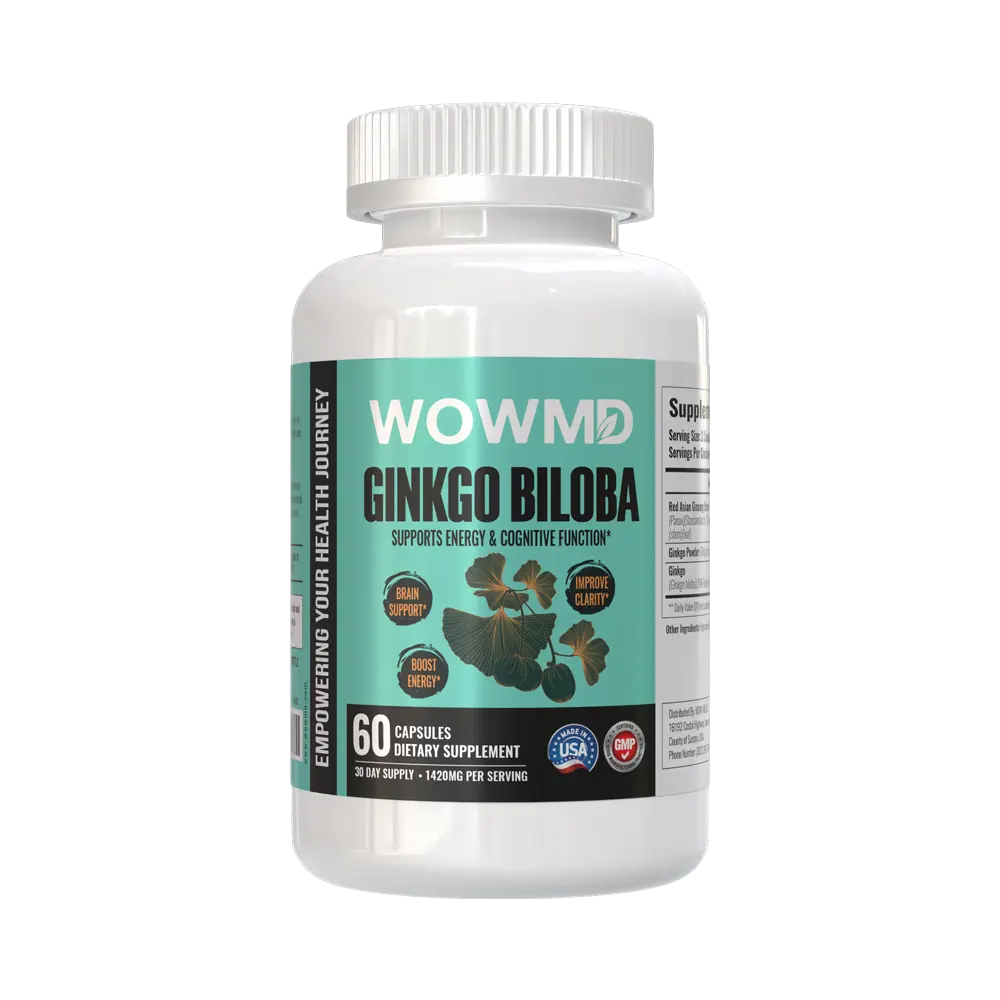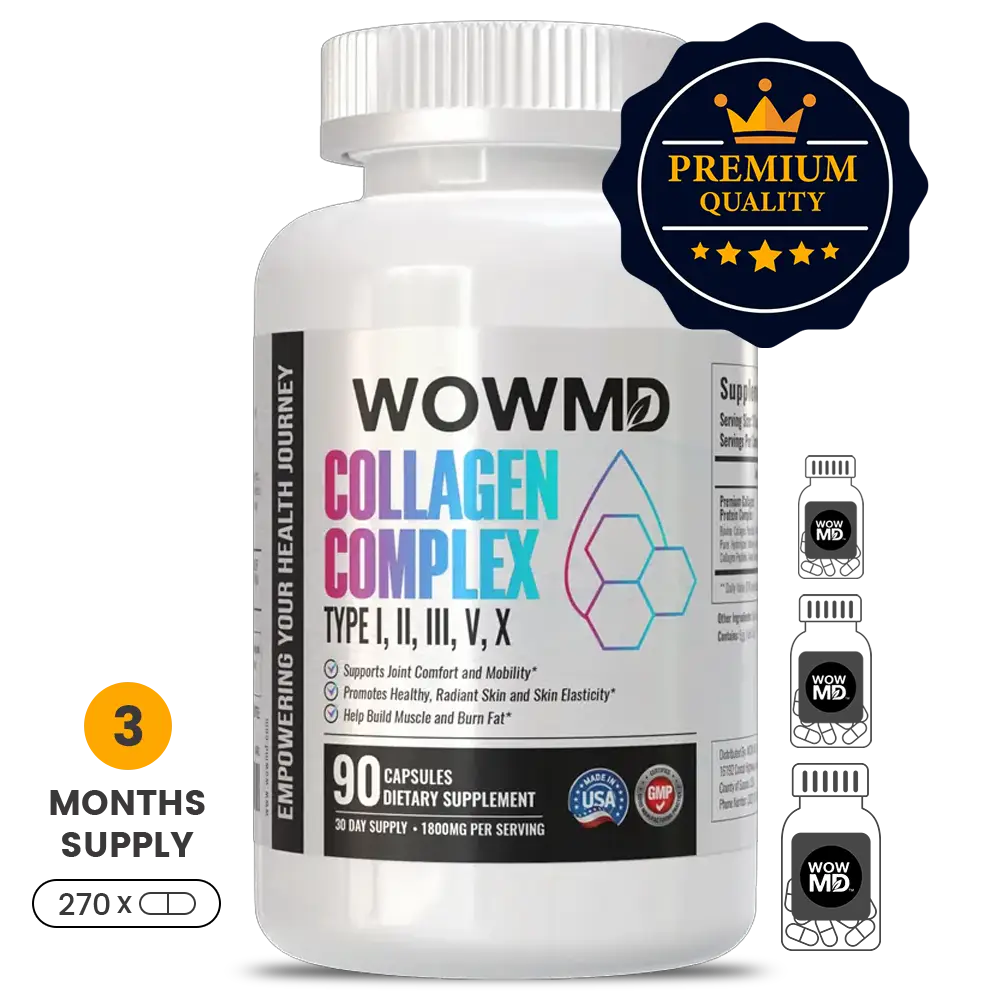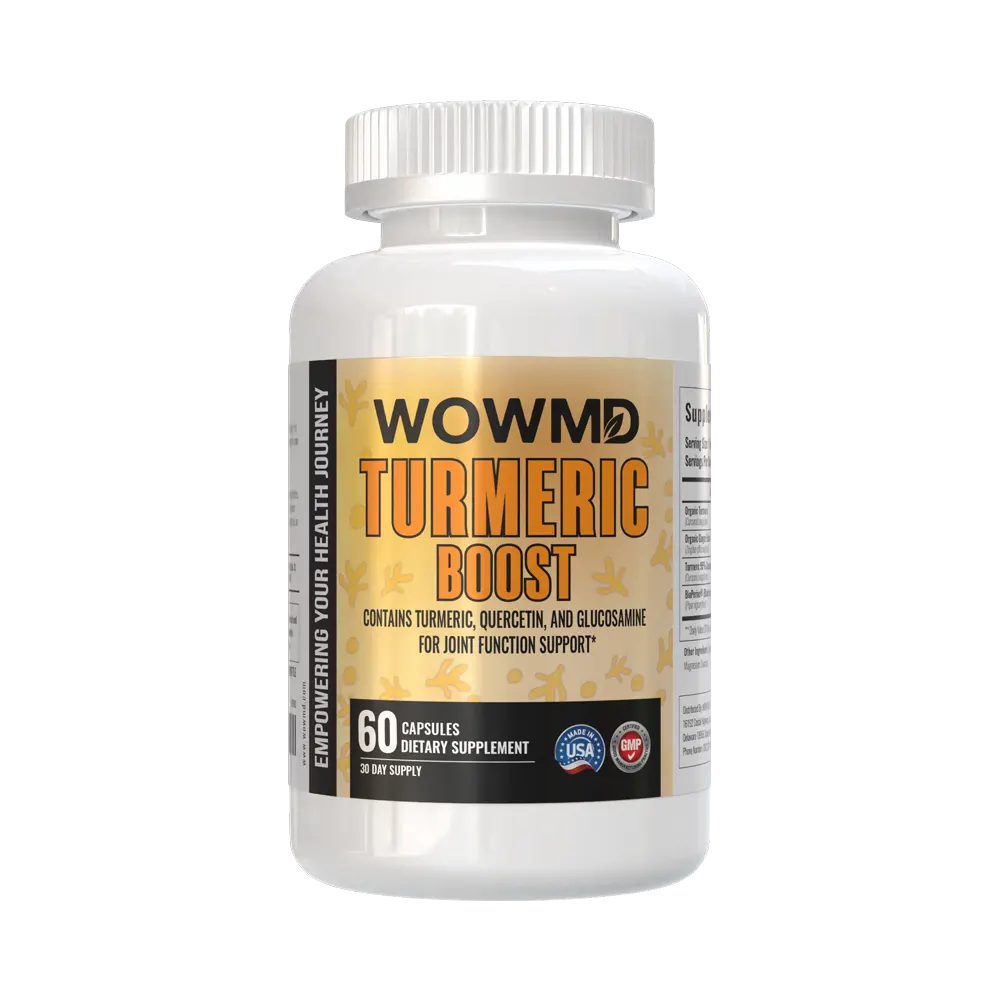Best Brain Supplements for Students
This article explores the best brain supplements for students that are not only effective but also safe for everyday use. Ready to sharpen your mental edge?

As students juggle multiple responsibilities—studying, exams, projects, and managing daily tasks—brain health becomes crucial for peak academic performance. The mind is the powerhouse behind memory, focus, and learning, so it’s essential to fuel it with the right nutrients.
Brain supplements, when combined with healthy lifestyle habits, can be powerful allies in enhancing cognitive functions like memory, focus, and mental endurance. However, many students are unsure of where to begin, what to look for, and how supplements work.
In this article, we will explore the top brain supplements for students, focusing on the ingredients that have been shown to support brain health and cognitive function. We will also provide practical tips for choosing the right supplement and using them effectively.
How Ingredients Transform Brain Health
The human brain is a complex organ with intricate systems of neurons and neurotransmitters. To function optimally, the brain requires specific nutrients and compounds that can support the transmission of signals, help in memory retention, and regulate mood
Neuroplasticity and Cognitive Growth
Neuroplasticity is the brain's ability to reorganize and adapt, allowing students to learn new information more efficiently. Some brain supplements contain ingredients that support neuroplasticity, helping the brain grow and adapt to new challenges.
For example, Bacopa Monnieri is a herb that has been shown to support memory consolidation and improve cognitive processing. Ingredients like Phosphatidylserine are also essential for brain function, helping to maintain and strengthen brain cell connections.
Neurotransmitter Balance: The Key to Focus and Memory
The brain relies on neurotransmitters to communicate between neurons. Imbalances in these chemicals can lead to issues with focus, memory, and mood. Ingredients like L-theanine, which is found in green tea, help calm the brain without inducing drowsiness. When paired with Caffeine, it helps improve focus and mental alertness, providing a balanced energy boost.
Antioxidants: Protecting the Brain from Damage
The brain is highly susceptible to oxidative stress, which can lead to cell damage and cognitive decline. Antioxidants like Ginkgo Biloba and Curcumin (turmeric) are crucial for protecting the brain. Ginkgo, for example, improves blood flow to the brain, enhancing memory and mental clarity, while curcumin has anti-inflammatory properties that protect the brain from oxidative damage.
The Star Ingredients: The Most Effective
When it comes to brain supplements, it’s all about the ingredients. Below are the most common and scientifically backed ingredients found in ineffective brain supplements that can boost cognitive performance in students.
1. Omega-3 Fatty Acids (DHA and EPA)
Omega-3s are essential fatty acids that support brain structure and function. They are particularly important for memory, learning, and focus. Studies have shown that Omega-3s, particularly DHA (Docosahexaenoic Acid), play a critical role in maintaining brain health and cognitive longevity. They help improve focus and memory retention, especially in stressful situations like exams.
Where to get it: Wild-caught fatty fish (salmon, mackerel, sardines), flaxseeds, chia seeds, walnuts, and algae-based supplements.
Benefits for Students: Long-term brain health, improving focus, and boosting memory retention during exams.
2. Ginkgo Biloba
Ginkgo Biloba is renowned for its antioxidant properties. It improves circulation and blood flow to the brain, helping to enhance mental clarity and reduce fatigue. Research indicates that Ginkgo improves memory and mental sharpness and protects against cognitive decline.
Where to get it: Available primarily as standardized supplements, since raw ginkgo isn't commonly found in foods.
Benefits for Students: Students facing mental fatigue, enhancing memory, and boosting mental clarity, particularly in stressful study environments.
READ MORE - Is It Safe to Take Ginkgo Biloba Daily?
3. Bacopa Monnieri
This herb is famous for its ability to support memory recall and cognitive processing. Studies show that Bacopa Monnieri enhances memory consolidation and reduces anxiety, improving both focus and learning capacity over time.
Where to get it: Available as supplements, teas, or powder forms, as it's not naturally present in common foods.
Why It's Perfect for Students Enhancing focus during study sessions and improving long-term memory recall.
4. Rhodiola Rosea
Rhodiola is an adaptogen that helps the body resist physical, mental, and emotional stress, while also boosting energy levels. Evidence supports Rhodiola’s ability to reduce cortisol levels (the stress hormone), keeping students calm and focused during intense study sessions.
Where to get it: Available primarily through supplements, as this herb isn't found in everyday foods.
Why Students Love It: Stress management, preventing burnout, and maintaining energy levels during long study periods.
5. L-Theanine
L-theanine is a calming amino acid that promotes relaxation without inducing drowsiness. Research has shown that L-Theanine helps to induce a state of “calm focus” when combined with caffeine. This balance prevents the jitteriness that can sometimes accompany caffeine.
Where to get it: Green tea, black tea, and specific mushroom varieties.
Student-Approved Benefits: Maintaining sustained focus during study or exam preparation, especially for students who rely on caffeine.
6. Phosphatidylserine (PS)
This lipid is vital for cognitive function, particularly for memory and learning. Studies show that Phosphatidylserine supplementation can help improve cognitive decline and promote clearer thinking.
Where to get it: Soy products, white beans, egg yolks, and organ meats.
For Students During Exams: Older students or those under intense academic pressure looking to improve cognitive resilience.
7. Vitamin B Complex
B vitamins are essential for energy production and brain health, helping to reduce brain fog and support mental clarity. B vitamins play a key role in neurotransmitter production and overall brain health. They are vital for maintaining energy levels and reducing mental fatigue.
Where to get it: Whole grains, legumes, leafy greens, eggs, dairy products, and lean meats.
Best for Study Marathons: Supporting cognitive function, reducing brain fog, and boosting energy during long study sessions.
8. Curcumin (Turmeric)
Curcumin, the active compound in turmeric, has potent anti-inflammatory properties that help protect the brain from oxidative damage. Curcumin has been shown to reduce inflammation and support long-term brain health.
Where to get it: Fresh turmeric root, curry dishes, golden milk, and turmeric-spiced foods.
Best for Student Wellness: Protecting the brain from cognitive decline and supporting long-term brain health.
Why Do Students Need Brain Support Supplements?
Academic life places extraordinary demands on students' cognitive capabilities and mental stamina. The daily routine of mastering diverse academic subjects, preparing for assessments, and handling academic pressure creates significant mental strain. Students often find their cognitive abilities and energy levels declining as these demands accumulate throughout their academic terms.
Natural cognitive enhancement supplements offer several key advantages for students:
- Enhanced Memory: Quick information retention and recall become essential skills during examination periods.
- Heightened Concentration: Environmental distractions can hinder learning, but proper focus enables more productive study sessions.
- Mental Stamina Support: Extended study periods often lead to cognitive exhaustion, which these supplements help counteract.
- Stress Response Support: Natural supplements often contain ingredients that support emotional balance during high-pressure situations.
Selecting appropriate natural cognitive support supplements provides sustainable mental enhancement without adverse effects. Let's explore the most beneficial options available for students.
The Synergy of Ingredients
While each ingredient in brain supplements has its benefits, their true power is unlocked when they work together. For example:
- Pairing L-Theanine with Caffeine enhances sustained focus without the jitters. This combination is perfect for students who need alertness and concentration during long study sessions.
- Combining Rhodiola Rosea and Bacopa Monnieri provides a one-two punch for stress reduction and enhanced mental clarity, enabling students to stay calm and sharp during exam time.
Multi-ingredient formulas can target different aspects of brain function, from memory retention to stress reduction, offering a well-rounded approach to cognitive health.
What to Look for When Choosing Brain Supplements for Students
With so many options available, how do you choose the best brain supplements for studying and improving concentration? Here are a few important factors to consider when selecting a brain supplement:
- Quality of Ingredients: Look for supplements that are made from high-quality, natural ingredients. Ensure that the product uses bioavailable forms of nutrients to improve absorption and effectiveness.
- Dosage: The right dosage of each ingredient is crucial for achieving the desired effect. Too much or too little may not provide the benefits you need, so make sure to follow recommended dosages.
- Avoid Fillers and Additives: Some supplements contain unnecessary fillers or artificial additives that can detract from their effectiveness. Opt for clean, simple formulations that focus on the essential ingredients.
- Trusted Brands: Choose reputable brands that provide transparent ingredient lists and have positive reviews from students who have benefited from their products.
Ways to Boost Brain Power While Studying
Our brains form the core of our identity, and maintaining optimal brain health can create a strong foundation for academic excellence during your university journey. Here are seven science-backed strategies to revitalize your brain power and maximize your academic potential.
Exercise Regularly
Through activities like running, swimming, or cycling, you can enhance your brain's learning and memory capabilities. This improvement directly translates to better retention of lecture material and study content. Health experts suggest 30-minute exercise sessions five times weekly for optimal results.
Embrace Creativity
Any creative pursuit or novel experience can significantly enhance your brain's cognitive functions.
Brain-boosting foods include:
- Zinc – meat, fish, legumes, mushrooms, spinach, broccoli, garlic, nuts and seeds, cereals and dairy
- Iodine – cod, seaweed, turkey, yoghurt, tuna, eggs, strawberries
- Vitamin B6 – pork, chicken, turkey, fish, bread, eggs, vegetables, peanuts, milk and cereals
- Vitamin B12 – meat, fish, dairy and cereals
- Omega-3 – fish, nuts, seeds and egg yolks
Connect Socially
Social interaction forms a crucial part of university life and enhances brain performance. Research shows that just ten minutes of daily conversation can optimize brain function, improving memory and cognitive performance.
Strategic Rest
Combining adequate nighttime sleep with a 30-minute daytime power nap provides your brain optimal recovery time. This rest schedule supports enhanced learning capacity and study effectiveness.
Optimize Your Nutrition
Specific nutrients target different aspects of brain function. Zinc and iodine enhance cognition, while vitamins B6, B12, and folate combat study-related fatigue. Omega-3 and DHA support crucial brain functions that facilitate learning.
Vary Your Routine
Research demonstrates that small changes in daily patterns stimulate brain activity and boost study productivity. Try alternating your campus routes, explore new shopping locations, or add small challenges to routine tasks. Seek one surprising experience daily.
Explore New Horizons
Novel experiences promote brain development and improve information processing abilities. Consider starting a new sport, learning a foreign language, or mastering a musical instrument. Visit local museums, participate in volunteer work, or plan short trips to unexplored destinations.
Conclusion
The journey to peak academic performance doesn’t have to be a daunting one. By understanding the role of brain health supplements and choosing the right ingredients, you can support your mind’s ability to focus, learn, and retain information. Brain supplements for students can be a game-changer, but they should always complement a healthy study routine, proper rest, and lifestyle habits.
By incorporating the best brain enhancers—such as Omega-3 fatty acids, Bacopa Monnieri, and Ginkgo Biloba—along with focused study practices, you’ll unlock the full potential of your brain, allowing you to excel in both academic and personal challenges.
Remember, your brain is your greatest asset—nurture it, and it will serve you well throughout your studies and beyond.
About WOWMD Staff
The WOWMD Staff category features a diverse team of writers, each bringing specialized knowledge in areas such as nutrition, fitness, wellness, and more. Articles in this category benefit from insights provided by multiple experts. All content is peer-reviewed and regularly updated to ensure compliance with our editorial standards.
References
- Understanding Neuroplasticity: Implications for Curriculum and Instruction https://online.usi.edu/degrees/education/msed-curriculum-and-instruction/understanding-neuroplasticity/
- Neurotransmitters https://my.clevelandclinic.org/health/articles/22513-neurotransmitters
- Brain Health across the Lifespan: A Systematic Review on the Role of Omega-3 Fatty Acid Supplements https://pmc.ncbi.nlm.nih.gov/articles/PMC6116096/
- Ginkgo biloba https://www.mountsinai.org/health-library/herb/ginkgo-biloba#
- Does Bacopa monnieri Improve Memory Performance in Older Persons? Results of a Randomized, Placebo-Controlled, Double-Blind Trial https://www.researchgate.net/publication/44887433_Does_Bacopa_monnieri_Improve_Memory_Performance_in_Older_Persons_Results_of_a_Randomized_Placebo-Controlled_Double-Blind_Trial
- Stress management and the role of Rhodiola rosea: a review https://www.researchgate.net/publication/322433988_Stress_management_and_the_role_of_Rhodiola_rosea_a_review
- L-theanine, a natural constituent in tea, and its effect on mental state https://pubmed.ncbi.nlm.nih.gov/18296328/#
- Phosphatidylserine in the Brain: Metabolism and Function https://pmc.ncbi.nlm.nih.gov/articles/PMC4258547/
- B Vitamins and the Brain: Mechanisms, Dose and Efficacy—A Review https://pmc.ncbi.nlm.nih.gov/articles/PMC4772032/
- Anti-Inflammatory Effects of Curcumin in the Inflammatory Diseases: Status, Limitations and Countermeasures https://pmc.ncbi.nlm.nih.gov/articles/PMC8572027/
- Regular exercise changes the brain to improve memory, thinking skills https://www.health.harvard.edu/blog/regular-exercise-changes-brain-improve-memory-thinking-skills-201404097110
Evidence Based Research
This WOWMD content has been reviewed, as well as checked for facts, so as to guarantee the best possible accuracy.
We follow a strict editorial policy, especially related to the sources we use. Our articles are resourced from reputable online pages, with research drawn from academic institutions and peer-reviewed studies. You can click on the numbers in the parentheses (1, 2, etc.) and check out those references.
The feedback form on this page can be used to report content that is not accurate, up-to-date or questionable in any manner.
We do NOT intend for the information presented through our articles to replace the medical relationship with a qualified physician, nor does it represent specialized advice.


 Skin Detoxification Bundle
Skin Detoxification Bundle Complete Weight Loss Bundle
Complete Weight Loss Bundle Heart Care Bundle
Heart Care Bundle Better Immunity Bundle
Better Immunity Bundle  Men's Immunity & Prostate Health Bundle
Men's Immunity & Prostate Health Bundle Stress + Energy + Wellness Combo
Stress + Energy + Wellness Combo  Energy Booster Combo
Energy Booster Combo Natural Skin Care Bundle
Natural Skin Care Bundle Workout Supplements Combo
Workout Supplements Combo Cognitive Health & Vision Combo
Cognitive Health & Vision Combo Joint Health Support Combo
Joint Health Support Combo

















 By WOWMD Staff
By WOWMD Staff